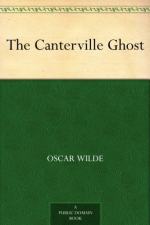|
This section contains 654 words (approx. 2 pages at 400 words per page) |

|
Even before the scandal of Wilde's trial for homosexuality and subsequent imprisonment (1895-1897), critics had a difficult time separating Wilde's life from his works. Indeed, Wilde's credo of "life for art's sake," or sometimes "art for art's sake," encouraged the comparison. Proponents of this school of thought believed that the creation of beauty is the moral purpose for both life and art. The French author Andre Gide believed that Wilde achieved artistic greatness through his life rather than his literary achievements. James Joyce, the renowned Irish novelist, saw little to appreciate in Wilde's literature, but nonetheless saw him as a martyr to art. More recently, critics have come to appreciate the merits of Wilde's stories. Many suggest that Wilde reinvented and interpreted his life through his works. Philip Cohen, in his book The Moral Vision of Oscar Wilde, views Wilde's life in the 1880s reflected in...
|
This section contains 654 words (approx. 2 pages at 400 words per page) |

|




